Published
- 05:00 am

A new global survey commissioned by ING shows consumer attitudes have reached a tipping point, leading them to avoid brands that don’t prioritize sustainability and environmental issues. Despite demanding change, customers will still engage in the linear ‘convenience economy’ model of ‘take, make and waste’ unless companies offer a more seamless transition towards the ‘circular economy’. Faced with potential damage to profitability, businesses must offer more convenient sustainable options to consumers in order to create meaningful engagement with the circular principles of ‘reduce, reuse and recycle’.no its
According to the new report, titled ‘Learning from consumers: How shifting demands are shaping companies’ circular economy transition’, the majority of respondents believe their behavior and choices can have a positive impact on addressing global environmental challenges (83 percent). Furthermore, 61 percent say they would be less willing to buy a company’s product if they discovered it was performing poorly on environmental practices.
The findings, which provide a detailed analysis of consumer interactions with fashion, food and electronics brands, highlight where consumers are already engaging in circular activities and their appetite for new product and service models. The report notes the potentially vast gains for businesses that embrace the ‘reduce, reuse, recycle' principles of the circular economy by aligning with consumers’ changing demands.
To better capture the opportunity of the circular economy and engage with these customers, companies must first understand the barriers to widespread consumer adoption. The barriers include:
- Awareness and education: In the electronics industry, only 21 percent think companies provide detailed information on the overall environmental impact of products; 41 percent don’t know where to access repair services; 71 percent aren’t aware of device-sharing platforms; and 39 percent can’t distinguish between recyclable and non-recyclable plastics.
- Empowerment and reassurance: The top reason for not repairing clothes is consumers’ belief that, to do so, they need skills they don’t have, with 48 percent having this sentiment. Meanwhile, concern about data security (42 percent) is the second-most cited concern around leasing electronic devices.
- Circular infrastructure and convenience: Engagement with more novel circular practices is being held back by the perceived effort required: 41 percent think renting clothes would require a lot more effort, and 36 percent say time is a barrier to repairing devices.
- Cost: Price is still a decisive factor for many consumers when buying clothes, food or electronic devices. More than half (54 percent) of consumers still choose low-cost, fast-fashion items over more expensive, more durable ones.
For companies to address these barriers for all of their customers they need a deeper understanding of consumer motivation. ING’s analysis identifies three broad groups: ‘Circular Champions’, ‘Circular Sympathizers’, and ‘Non-engagers’. The report identifies within each industry sector the different buying decisions, behaviors, and motivations of each group in embracing – or not – circular economy practices. Through understanding the differences in motivations from each consumer segment, brands can gain insight into how to transition to circular business models while also engaging those whose buying decisions are not based on environmental factors.
In a related report issued last year, ‘Opportunity and Disruption: How Circular Thinking Could Change U.S. Business Models’, nearly four in five U.S. firms had a strategic intent to implement a circular economy framework (62 percent) or had already put one in place (16 percent). ING’s two circular economy reports recognize businesses' and consumers’ progress in transitioning and engaging with the circular economic model.
Methodology
● Longitude, a division of the Financial Times Group, surveyed 15,001 consumers in 11 countries across Europe, APAC and North America during Q3 and Q4 of 2019.
● A nationally representative sample based upon age, gender and income was targeted within each market.
● Consumers were asked about their attitudes and current interactions with fashion, food and electronics brands, as well as their appetite for emerging product and service models.
View the report here https://www.ingwb.com/media/3076131/ing-circular-economy-survey-2020-learning-from-consumers.pdf
Related News
- 04:00 am
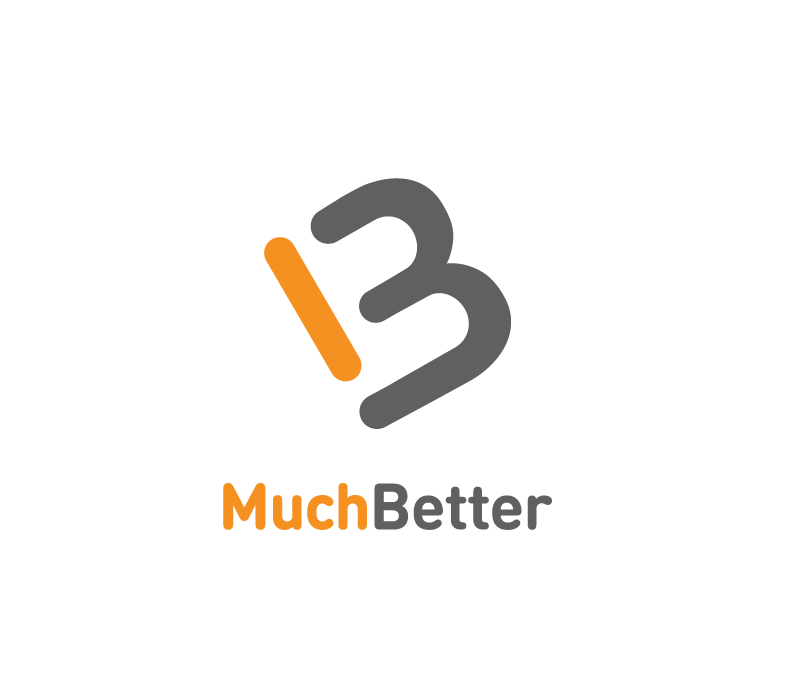
MuchBetter, the award winning iGaming payments company, today announced the launch of a unique payments service allowing customers to set up a personal IBAN (International Bank Account Number) for use with their MuchBetter accounts, that can be paired with their iGaming accounts. The IBAN service is a free, private and straightforward way for players to transfer payments to their most frequently used iGaming accounts.
IBAN is an internationally agreed system of identifying bank accounts across national borders to facilitate transactions with a reduced risk of errors. The MuchBetter IBAN service functions like a secondary bank account, enabling users to make deposits to their iGaming accounts directly from their bank accounts without ever having to open their gaming app or their MuchBetter app.
These IBAN transactions are equally straightforward for operators. As a push payment, there is no payment risk. Transactions are made through the MuchBetter API just like other MuchBetter transactions. This means there is only very little technical effort and no need for operators to complete extra paperwork or technical processes in order to accept MuchBetter IBAN payments. Operators get notified each time an IBAN transaction comes through, enabling a real-time crediting of the players gaming account.
“This is a unique new service for iGaming’s early adopters, for players and operators alike,” said MuchBetter co-founder, Jens Bader. “For regular players, having a personal IBAN is a hassle-free way of transferring funds into their favourite iGaming accounts without ever opening an iGaming app, logging in or visiting a cashier page. It also adds that extra layer of privacy for those that want it. For operators, the service is a great way to appeal to these high value players, giving them access to a unique, seamless and secure deposit option. There is very little cost or effort required to set up the IBAN deposit option. No paperwork, no painful technical processes.”
The MuchBetter IBAN service will initially be open to European MuchBetter customers and merchants, with plans to roll out the service globally later in 2020. For more details, please contact the MuchBetter team.
Related News
- 07:00 am

ClearCourse ( or “the Group”), a group of innovative technology companies providing digital services, work-flow solutions, and payments capabilities to the membership, events & bookings, sports & lifestyle and healthcare sectors, announces today that it has made two key senior hires. Jonathan Tiverton Brown has been appointed as Chief Financial Officer and Keith Bell joins the group as Chief Commercial Officer.
Since its foundation in October 2018, ClearCourse has forged an exciting growth trajectory. Attracting professionals of the calibre and experience of Jonathan and Keith is a positive reflection of the size and scale that the Group has achieved. In just 15 months, ClearCourse has made 18 acquisitions, comprising 15 innovative technology businesses across a wide range of sectors. Its rapid growth and resultant scope necessitate highly technically competent C-level executives to manage the complex workflows and ensure sustainable long-term development.
In his role as CFO, Jonathan is critical to the Group’s ongoing operation, driving measurable value through the management of its core financial processes and reporting requirements. Keith as CCO will be invaluable in driving organic growth, working directly with the Group companies to build long-term sales pipelines and maximise revenue.
Jonathan joins ClearCourse following a successful career at KPMG, where he spent 10 years as a senior audit manager, gaining invaluable experience advising an extensive client portfolio. More recently, he held the position of Managing Director of Finance at Markit, a leading global information services provider in the United Kingdom. In this role he oversaw three teams across Group Accounting, Sarbanes–Oxley Act compliance and Treasury.
Keith has over 20 years’ experience as a sales leader with a demonstrated history of achievements in the software industry. Most recently, he served as Chief Revenue Officer at Workshare, an enterprise SaaS company specialising in collaborative applications and file sharing. Under his management, Keith grew the company prior to selling to a private equity firm that invests solely in high-growth B2B technology companies. He spent seven years at Rocela Application Management, a cloud services provider that focuses on Oracle Software Services, serving as Sales Director before holding the position of Managing Director for over two years.
Gerry Gualtieri, CEO of ClearCourse, commented on the appointments: “We’re very pleased to welcome Jonathan and Keith to the ClearCourse team. Jonathan is a highly experienced professional who will be key to the Group’s ongoing operations and ambitious growth objectives. Keith brings an impressive range of technology focused expertise from sales and marketing roles in high-growth companies and as a leader of customer-centric growth strategy and operations. It’s great to kick of 2020 with them both on board.”
Jonathan Tiverton Brown commented: “I’m thrilled to have joined ClearCourse at such an exciting time in its evolution. Managing the financial operations of such a large a growing group of companies is an exciting task, and the dedicated group of people behind the business makes it an even more compelling prospect. I look forward to being a key part of the next phase of growth and beyond.”
Keith Bell added: “Joining ClearCourse is a fantastic opportunity. It is a chance to apply my experiences in sales and marketing to a market disruptor with an exciting strategy to become the leading technology partner to a whole range of business sectors.”
Related News
- 07:00 am
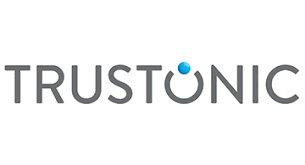
Mobile device and app security leader Trustonic today announces that its trusted execution environment (TEE)* solution is the first hardware-backed TEE to complete the EMVCo Software-Based Mobile Payments security evaluation process.
EMVCo is the global technical body that facilitates the worldwide interoperability and acceptance of secure payment transactions. As such, this evaluation process confirms that the Trustonic TEE provides a robust security foundation that meets the requirements of software-based mobile payment (SBMP) and acceptance solutions.
“This technology is already protecting payment apps from small startups through to some of the largest OEMs and mobile payment providers in the world; all via a simple SDK,” comments Dan Rawlings, CCO, Trustonic. “This certification, and the adoption of Trustonic Application Protection in the financial sector, confirms what many fintechs, banks, payment schemes and mPOS developers already know. Trust, credibility and confidence are built and maintained with high levels of assurance, and combining software and hardware-backed security is the only way to achieve that when the stakes are high.”
The Trustonic Application Protection (TAP) development toolkit enables developers to easily build and deploy a range of secure financial applications including mobile payment, banking, and acceptance use cases like mobile point of sale (mPOS), ‘tap on phone’ and software-based PIN entry on COTS (SPoC). This protects mobile applications by securing sensitive code, data and processes in Trustonic’s heavily protected TEE. The environment continuously upgrades over the course of an app’s lifecycle to take advantage of the most advanced hardware and software security technologies available on smartphones. The platform includes Trustonic’s Trusted User Interface (TUI), which isolates and protects sensitive input and display user interactions from the device operating system – like PIN entry – in app user interfaces.
“Hardware-backed TEE technology plays a big role in enabling the mobile financial ecosystem to mature and achieve its potential,” adds Tim Hartog, Director Mobile Payments at Riscure, the independent security test laboratory that performed the security evaluation. “This is because hardware-backed TEE technology, like Trustonic’s TEE, can protect apps even if attackers have root privileges on the device. With Trustonic providing access to the TEE through TAP, solution developers are now able to effectively secure PIN entry on smartphones. This is a key enabler for using smartphones as acceptance devices.”
Dan Rawlings concludes: “The payments and banking ecosystems are leading the way when it comes to securing apps and data. As regulations like PSD2, SCA and GDPR evolve, privacy is pushed into the consumer domain, security is becoming a differentiator. Developers need to know that hardware no longer limits innovation and user experience, the flexibility of TEE security is nuanced and can be used to deliver simpler, richer and faster user experiences.”
Related News
- 09:00 am
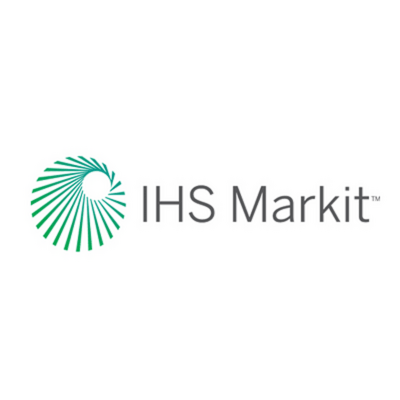
IHS Markit, a world leader in critical information, analytics and solutions, today announced a collaboration with MSCI that enables MSCI’s Environmental Social and Governance (ESG) rating and research data to be applied in the broad range of fixed income and credit indices from IHS Markit.
"Investors have a growing appetite for exposure to ESG funds, creating a need for indices that integrate these principles while accurately representing the underlying market and continuing to deliver strong returns,” said Sophia Dancygier, head of Indices at IHS Markit. “In recognizing the importance of sustainable investing and following the successful launch of our Global Carbon Index, we are excited to collaborate with MSCI as we expand our ESG coverage in iBoxx and iTraxx indices.”
"As investors continue to evaluate opportunities to incorporate ESG considerations into their portfolios, we are pleased to be working with IHS Markit to apply MSCI’s ESG ratings and research data to their suite of fixed income and credit indices,” said Eric Moen, head of ESG Products for MSCI ESG Research. “MSCI ESG Research covers 650,000 equity and fixed income securities globally, which provides quality insights into ESG risks and opportunities within multi-asset class portfolios.”
As a first phase of the collaboration, IHS Markit has launched sustainability-focused iBoxx MSCI short maturity corporate bond indices in three currencies (EUR, USD, GBP). The new iBoxx MSCI ESG indices exclude issuers in business lines or activities defined by MSCI ESG business involvement screens. Inclusion in the indices is also restricted to issuers with MSCI ESG ratings of BBB and above, and those in compliance with the United Nations Global Compact principles, which demonstrates a quantified commitment to ESG standards in operations, products and services.
IHS Markit administers more than 25,000 benchmark, economic and tradable indices across assets and more than $135 billion in AUM are held by ETFs referencing IHS Markit indices. The firm’s growing set of solutions for sustainable investing include its indices, Environmental Registry, ESG Reporting platform, OPIS Carbon Market Report, national carbon policies database and industry standard methodologies for greenhouse gas accounting and disclosures.
For more information on the new sustainability-focused indices – named Markit MSCI ESG iBoxx USD Liquid Investment Grade Ultrashort Index, Markit MSCI ESG iBoxx EUR Liquid Investment Grade Ultrashort Index and Markit MSCI ESG iBoxx GBP Liquid Investment Grade Ultrashort Index – visit the iBoxx documentation website.
Related News
- 09:00 am

Deutsche Bank has once again partnered with the European Investment Bank (EIB) as Sole Lead Manager to increase the EIB’s Australian dollar Climate Awareness Bond (CAB) by 150 million.
Deutsche Bank Australia also participated as a significant investor in the bond issue, demonstrating the bank’s own commitment to climate action investments.
EIB said: upsizing the latest CAB “confirms Asia-Pacific investors’ growing focus on climate change with 93 percent of allocations to Australian and Japanese investors.”
Funds raised from the 150 million Australian dollar issue will be directed to EIB’s climate action lending projects within the fields of renewable energy and energy efficiency (RE&EE).
Deutsche Bank Australia’s CEO, Anthony Miller, said: “Deutsche Bank is delighted to be assisting EIB with its commitment to climate action by acting as both a Sole Lead Manager and an investor in its latest Australian Dollar Climate Awareness Bond. As a leader in green bond issuance globally, we foresee an increasing demand from clients this year in green financing as they seek to play a role in addressing climate change. As an investor, EIB’s clearly defined climate action priorities align with our own Environmental, Social and Governance principles.”
In 2007, EIB issued the world’s first green bond, or CAB, also managed by Deutsche Bank. As at the end of 2019, EIB remained a leading issuer of green bonds with over 26.7 billion euros raised across 13 currencies.
Related News
- 08:00 am
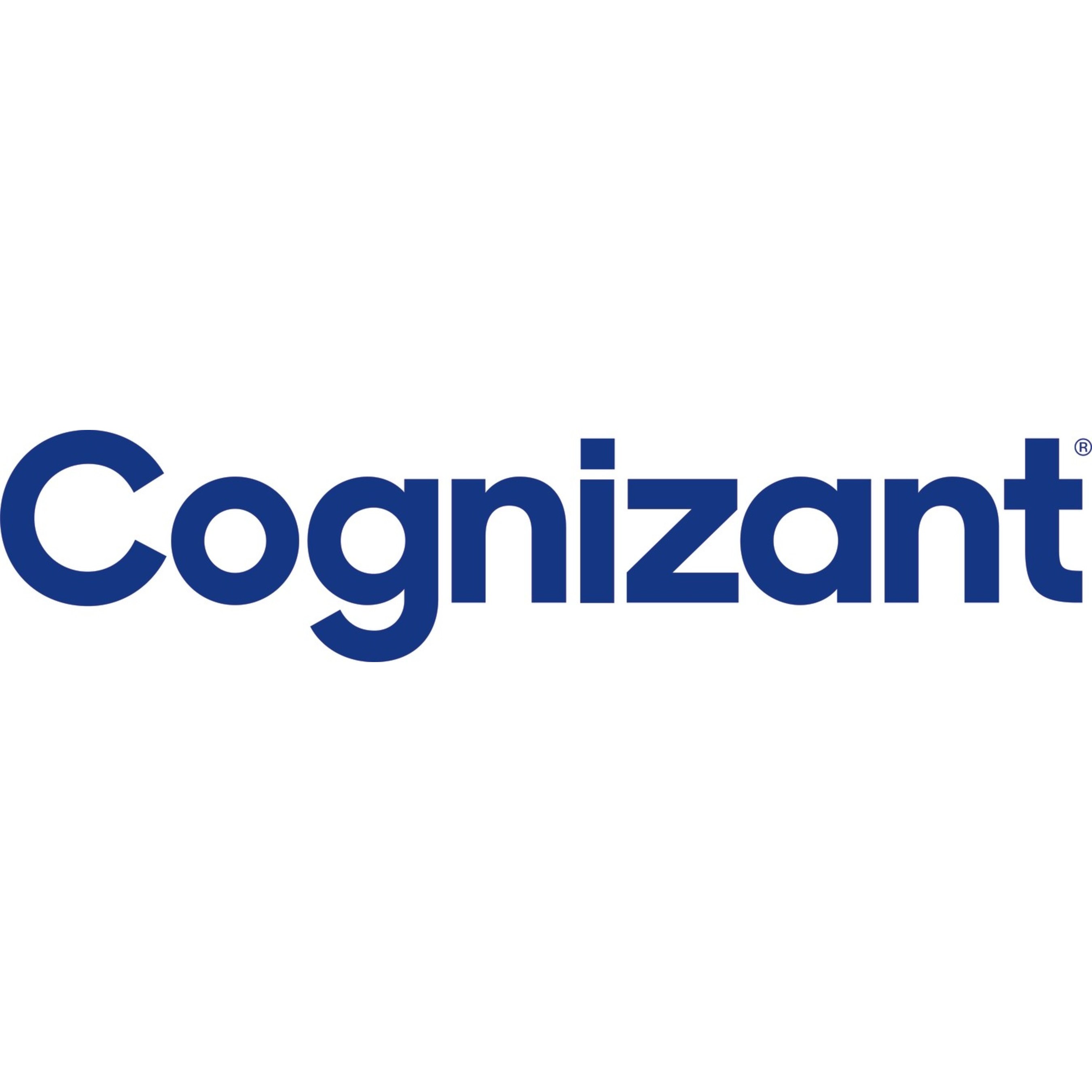
Cognizant today announced it has acquired Code Zero Consulting, a privately-held provider of consulting and implementation services for cloud-based Configure-Price-Quote (CPQ) and billing solutions. The acquisition further strengthens Cognizant's cloud solutions portfolio and Salesforce CPQ and billing capabilities. Financial details were not disclosed.
Founded in 2016, Atlanta, Ga.-based Code Zero specializes in helping companies digitally transform by providing strategy, implementation and migration capabilities to evolve legacy systems to cloud-based CPQ and billing systems. Together with contract lifecycle management, these systems make up Quote-to-Cash (QTC) solutions and enable clients to rapidly configure, price and quote complex deals, automate the customer lifecycle and accelerate revenue.
Code Zero is a Salesforce Platinum Partner and includes leading global enterprises among its clients across industries, particularly manufacturing and financial services.
Code Zero's expertise, geographic presence and client portfolio build on capabilities Cognizant expanded with its October 2018 acquisition of ATG, a preeminent consultancy focused on QTC business processes and technologies. ATG's experts at delivery centers in Kansas, Missouri, Montana and Ohio comprise one of the industry's largest teams of specialists in QTC for multiple technology platforms. Code Zero's team of professionals, based primarily in Atlanta, Ga., and Charlotte, N.C., will complement and extend ATG's footprint.
"The acquisition of Code Zero enriches our cloud offerings, brings deep domain expertise to our clients and further strengthens our strategic relationship with Salesforce.com," said Brian Humphries, CEO of Cognizant. "I'm delighted to welcome Code Zero's professional team to Cognizant."
"We're thrilled to be joining Cognizant, a global Fortune 200 firm, and ATG, a world-leading QTC consultancy," said Gene Nix, co-founder and managing partner of Code Zero. "Cognizant and ATG share our passion for collaborating with clients and helping them succeed in their digital transformation endeavors. Combining our respective expertise in advising on, implementing and managing CPQ and billing business processes and technologies contributes to a true global powerhouse of Salesforce platform expertise."
Salesforce and others are among the trademarks of salesforce.com, inc.
Related News
- 08:00 am
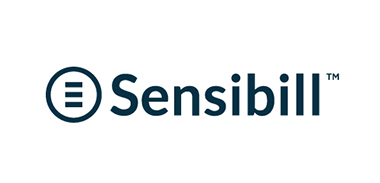
Sensibill announced that digital banking veteran Tom Shen has been appointed chair of the board. Shen is joined on the board by Corey Gross, co-founder and CEO of Sensibill, David Unsworth, general partner at Information Venture Partners, and Benji Sucher, general partner at Radical Ventures.
Shen’s addition to the board is part of a series of executive appointments designed to help the company fulfill its mission of powering financial institutions with innovative solutions that drive customer value and engagement, while expanding the data streams financial institutions need to forge deeper relationships. Sensibill secured $31.5 million USD in Series B funding in 2019 to further support this initiative. The round was led by Radical Ventures, with participation from the National Bank of Canada and others. Radical Ventures is focused on applying data and AI on a global scale; their involvement adds a deeper layer of data expertise that is complemented by Shen’s digital banking experience.
Shen is a proven expert at scaling digital banking services for financial institutions. He was the founder and CEO of digital banking solutions provider Malauzai, which he sold to Finastra in 2018. Finastra attributed the company’s market leadership and open approach as part of its purchasing decision. In 2005, Shen joined the executive team at Digital Insight, an internet banking and payments provider ultimately acquired by NCR Corporation (NYSE: NCR). The first company he founded was Software Dynamics, Incorporated (SDI), a provider of teller and platform automation software that grew to work with more than 1,200 financial institutions before it was sold to S1 Corporation in 2001. The business was later acquired by ACI Worldwide (NASDAQ: ACIW).
“Sensibill is at the precipice of a major breakthrough,” commented Shen. “The company has joined forces with some of the world’s leading financial institutions, and they are highly proficient in a market that is ripe for change. Customers have become accustomed to personal and on-demand service from their experiences with big tech; Sensibill’s use of purchase data and AI expertise makes these user experiences readily available to financial institutions.”
Gross added, “There are only a handful of digital banking innovators of the caliber of Tom Shen. His success building and delivering game-changing digital solutions for financial institutions has been proven time and again. We’re excited to have him join Sensibill as we endeavor to make banking more personal.”
Sensibill has raised a total of $46.5 million USD and has partnered with the largest financial institutions and digital banking providers in the U.S., the U.K., and Canada.
Related News

Sanjay Mathew
Senior Director, Financial Services Industry Solutions at Oracle
If you think about it, financial services have traditionally been disconnected from their customers’ goals. see more
- 01:00 am

The Payment Request API is a web standard to make it easier for web developers to build low-friction and secure payment flows.
Shipping the Payment Request API over the last two years helped us better understand the challenges in building payment flows on the web. We learned that UX is critical for building user trust with a payment app, and new technology such as tokenization has made great strides in protecting users from online fraud by never exposing a user’s credit card number to a website. Unfortunately, Chrome’s built-in payment handler for “basic-card” falls short on both regards. As we considered solutions, we realized that the best way to enable more seamless and secure payments on the web is to enable an interoperable ecosystem, where digital wallets can bring their best experience to the web. This means shifting focus to the Payment Handler API, which is an emerging W3C standard that allows 3rd party payment handlers, which can be either native mobile apps or progressive web apps, to integrate with the browser to handle Payment Requests. This enables users to complete one-click payments anywhere on the web using their wallet of choice.
This shift in focus means that we will eventually sunset Chrome’s built-in “basic-card” payment handler. We will start by removing “basic-card” support from iOS Chrome, where this feature has the least usage. This change is coming in M81. In its place, we are investigating how to enable native apps on iOS to integrate with Payment Request API in Chrome. The “basic-card” payment method remains a W3C standard and developers can build compatible payment handlers using the Payment Handler API by setting method to “basic-card” when registering a payment handler with the browser.
This M81 change will deactivate Payment Request API on iOS Chrome because “basic-card” is the only supported payment method and because payment handlers are unavailable due to the lack of Payment Handler API support in WKWebView. If you’re a developer that uses Payment Request API, please make sure you use feature detection and provide a suitable fallback to ensure iOS users continue to have a working alternative. This is also needed to ensure your website works as expected in browsers that don’t yet support Payment Request API.









